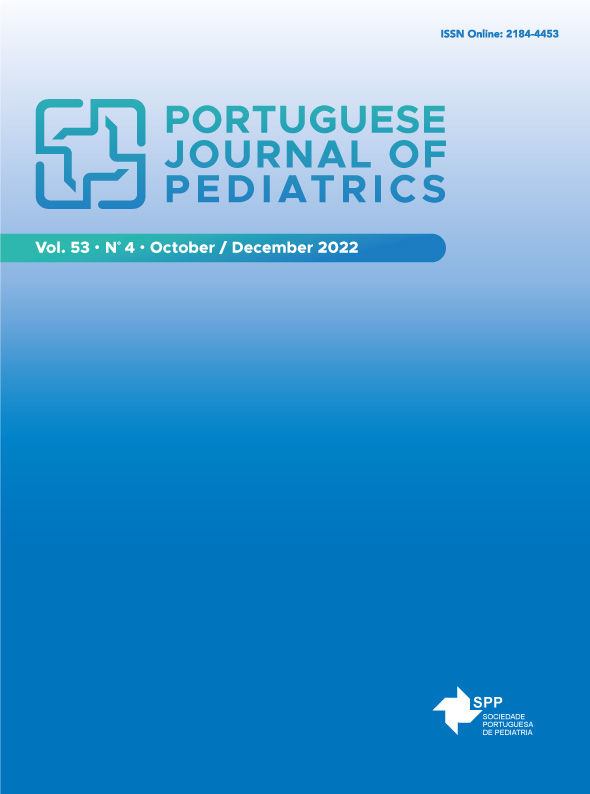COVID-19 Pandemic Impact on Metabolic Control of Type 1 Diabetes in Children
DOI:
https://doi.org/10.25754/pjp.2022.25777Abstract
Introduction: Coronavirus disease 2019 pandemic has led to the adoption of extreme public health measures worldwide, and many governments imposed lockdown policies during the pandemic. In Portugal, the first emergency state began in March 2020 which led to the closure of schools and gyms, depriving children of all physical activities. This study aimed to evaluate the lockdown impact on metabolic control of children with type 1 diabetes.
Methods: Children with type 1 diabetes, followed in the pediatric endocrinology unit of a tertiary care hospital were included in this study. Data were collected from 16/03/2019 to 15/12/2020 and analyzed by quarters: -Q4, -Q3, -Q2, -Q1, from 16/03/2019 to 15/03/2020, and Q1, Q2, and Q3 from 16/03/2020 to 15/12/2020. Metabolic control was evaluated by evolution of glycated hemoglobin, z-score of body mass index, and the insulin daily dose. The statistical analysis was performed using SPSS Statistics (version 23), and mean differences were considered statistically significant at p < 0.05.
Results: This study included a total of 203 patients with a mean age of 10.8 ± 3.2 years and a type 1 diabetes duration of 6.4 ± 3.6 years. Moreover, 57.1% of the patients were male, and 86.7% were undergoing continuous subcutaneous insulin infusion. Mean glycated hemoglobin decreased from Q1 to Q2 (7.97% to 7.51%, p < 0.001) in all age groups, regardless of gender and type of treatment; however, it maintained the same value for the homologous periods -Q3 to Q2. Body mass index z-score increased from -Q4/-Q3 to Q2/Q3 (0.58 standard deviation to 0.71 standard deviation, p = 0.009). Insulin daily dose increased from -Q3 to Q3 (0.87 U/kg/day to 0.91 U/kg/day, p = 0.009).
Conclusion: During the lockdown period, there was no worsening of metabolic control and parents made accurate adjustments to insulin doses, indicating a good level of knowledge regarding the treatment of type 1 diabetes.
Downloads
Downloads
Published
Issue
Section
License

This work is licensed under a Creative Commons Attribution-NonCommercial-NoDerivatives 4.0 International License.









